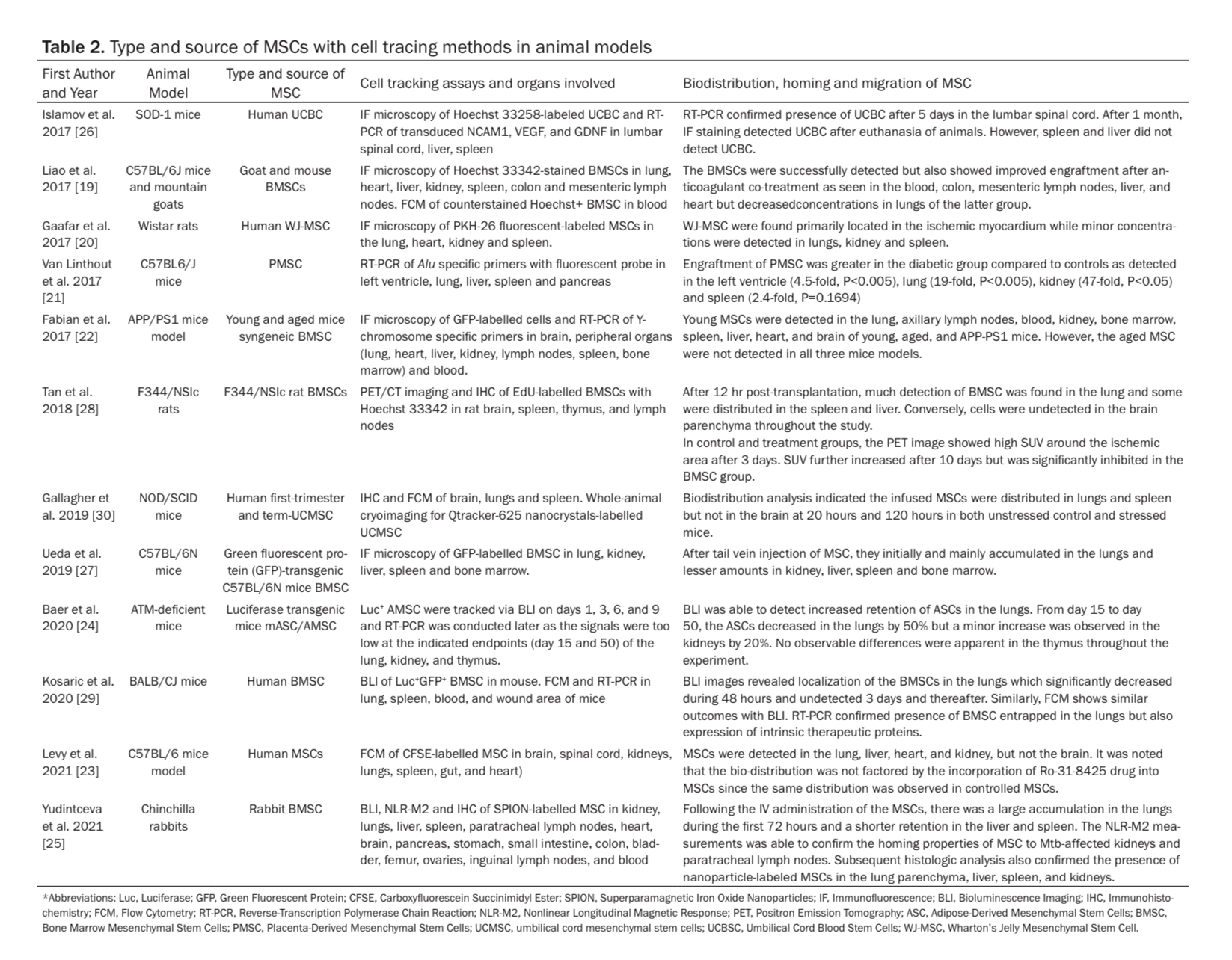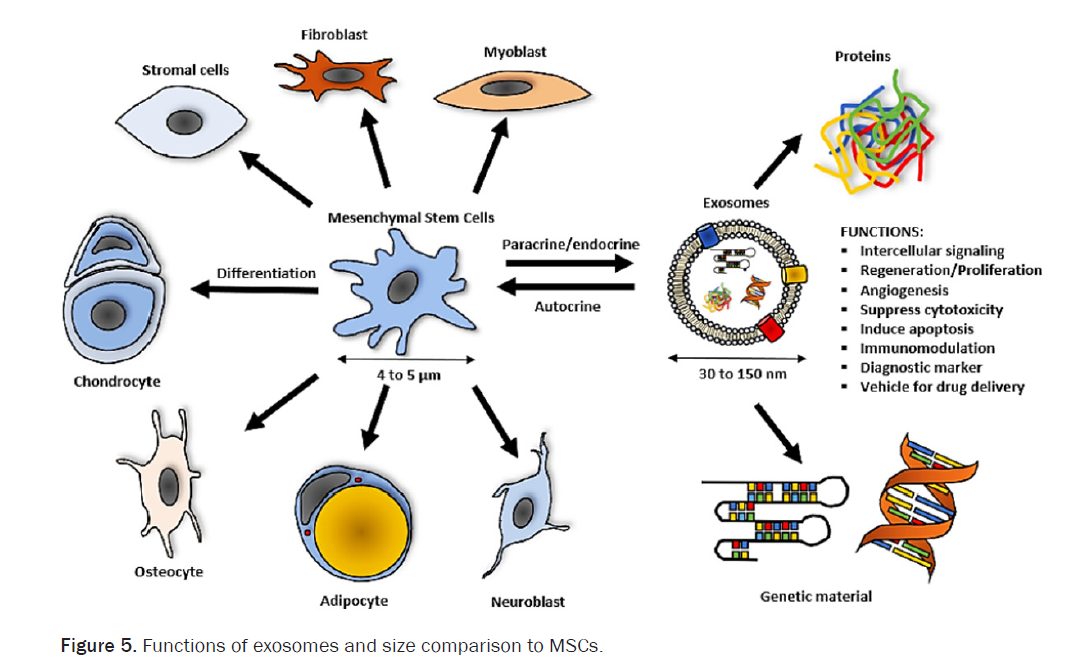[Review] Potential Role of Exosomes in Systemically Infused Mesenchymal Stem Cell Therapy
- Categories:Company News
- Author:
- Origin:
- Time of issue:2022-06-29
- Views:0
(Summary description)Recently,aresearchgroupledbyProfessorDuYa'nanfromTsinghuaUniversitySchoolofMedicine,incollaborationwithBeijingCytoNicheBiotechnologyCo.,Ltd.,publishedaresearchpaperinBiomaterials[IF:12.479]entitled"En
[Review] Potential Role of Exosomes in Systemically Infused Mesenchymal Stem Cell Therapy
(Summary description)Recently,aresearchgroupledbyProfessorDuYa'nanfromTsinghuaUniversitySchoolofMedicine,incollaborationwithBeijingCytoNicheBiotechnologyCo.,Ltd.,publishedaresearchpaperinBiomaterials[IF:12.479]entitled"En
- Categories:Company News
- Author:
- Origin:
- Time of issue:2022-06-29
- Views:0
【Introduction】
Mesenchymal stem cells (MSC) are promising candidates for the treatment of chronic degenerative diseases. These cells can regenerate or differentiate into other cell types, and secrete various trophic factors to participate in migration, proliferation, and immunomodulation. However, this treatment still faces some unresolved challenges. A common issue is the low survivability and migration of systemically infused MSC towards targeted regions. Nevertheless, successful clinical treatment of various chronic diseases suggests that the MSCs may have an alternative mechanism. In a recent review published in Am J Transl Res, researchers from University Kebangsaan Malaysia summarized the biodistribution of MSCs in animal models following systemic injection, revealing the potential role of exosomes in MSC therapy.
【Review】
The researchers compiled studies between 2017 and 2021 to determine the homing and migration of MSCs by specific and peripherally-targeted organs. The analysis revealed that the common route of MSCs occurred most frequently in the lungs, liver, kidney, and spleen. The MSCs could also migrate toward the heart and lymph nodes in response to inflammation. In addition, MSCs were less frequent in the blood, gut, bone marrow, pancreas, and lumbar spinal cord.

Figure | Biodistribution, homing, and migration of mesenchymal stem cells in animal models
Due to the blood-brain barrier, endothelial barrier, and other factors, infused MSC did not reach most organs or targeted organs; however, the animals in the studies still exhibited significant recovery and return of function. Therefore, the researchers proposed a second mechanism by which MSCs function at the site of tissue damage by secreting exosomes carrying proliferative and anti-inflammatory cytokines. Exosomes carry an abundance of functional proteins and genetic instructions. Often, they are an external manifestation of their parent or derived cell. For example, the tumor-derived exosomes have an abnormally high concentration of anti-apoptotic, immuno-suppression, and growth factors. Other isoforms such as natural killer (NK) cell-derived exosomes are able to elicit a greater immune response from cells that are under-responsive or impaired against infections. The NK-derived exosome boasts anti-tumor potential by delivering and further stimulating key apoptotic factors (i.e., PD-1, FasL, etc.) and supplying cytotoxic proteins (i.e., perforin, granzyme, etc.). Therefore, the authors hypothesized that exosomes secreted by MSCs also play a key role in MSC therapy.

Figure | Functions of exosomes and size comparison to MSCs
【Conclusion】
Exosomes present a valuable opportunity for cell-free therapeutic agents. Owing to the compact size of exosomes (30–150 nm), this can open avenues for regenerative medicine in the BBB, CNS, or other related barriers. At the end, the researchers suggested that the use of exosomes as a therapeutic method still faces many difficulties and challenges. The identity, purity, quality, safety, and functionality of exosomes are still unknown. Similar to the beginnings of MSC exploration, the perception of exosome studies remains overwhelmingly positive despite the knowledge gaps and barriers.
【References】
Reference: Biodistribution of mesenchymal stem cells (MSCs) in animal models and implied role of exosomes following systemic delivery of MSCs: a systematic review. Am J Transl Res. 2022;14(4):2147-2161. ISSN:1943-8141.
Scan the QR code to read on your phone
-
Phone
- Service hotline+86 400-012-6688
-
E-mail
- E-mailwangal@cytoniche.com
- TOP



 京公网安备 11010802037749号
京公网安备 11010802037749号
